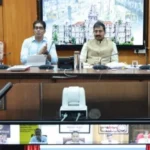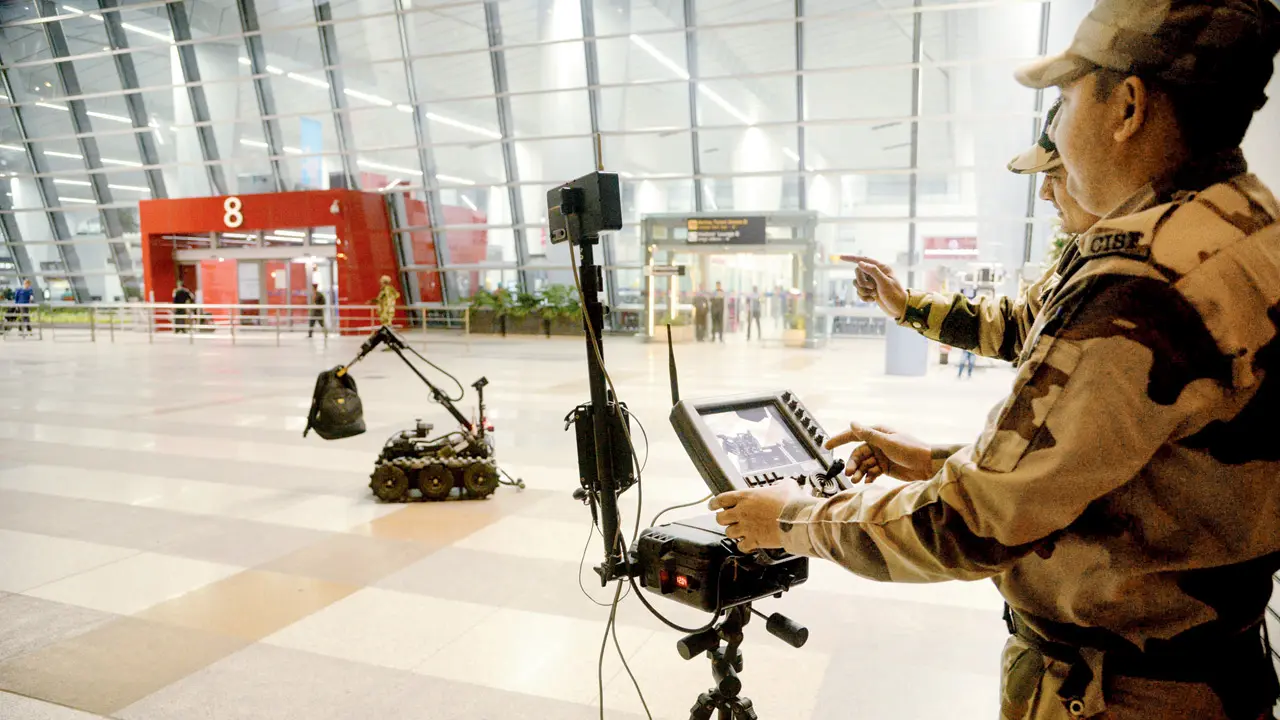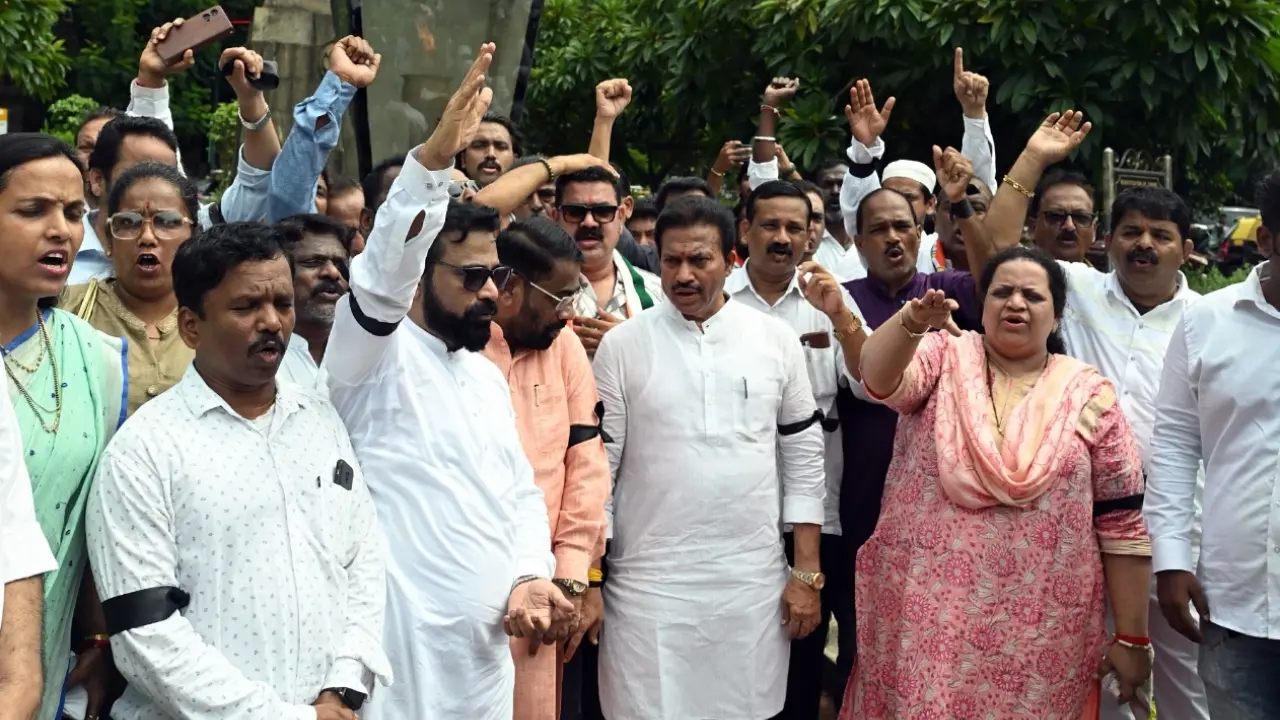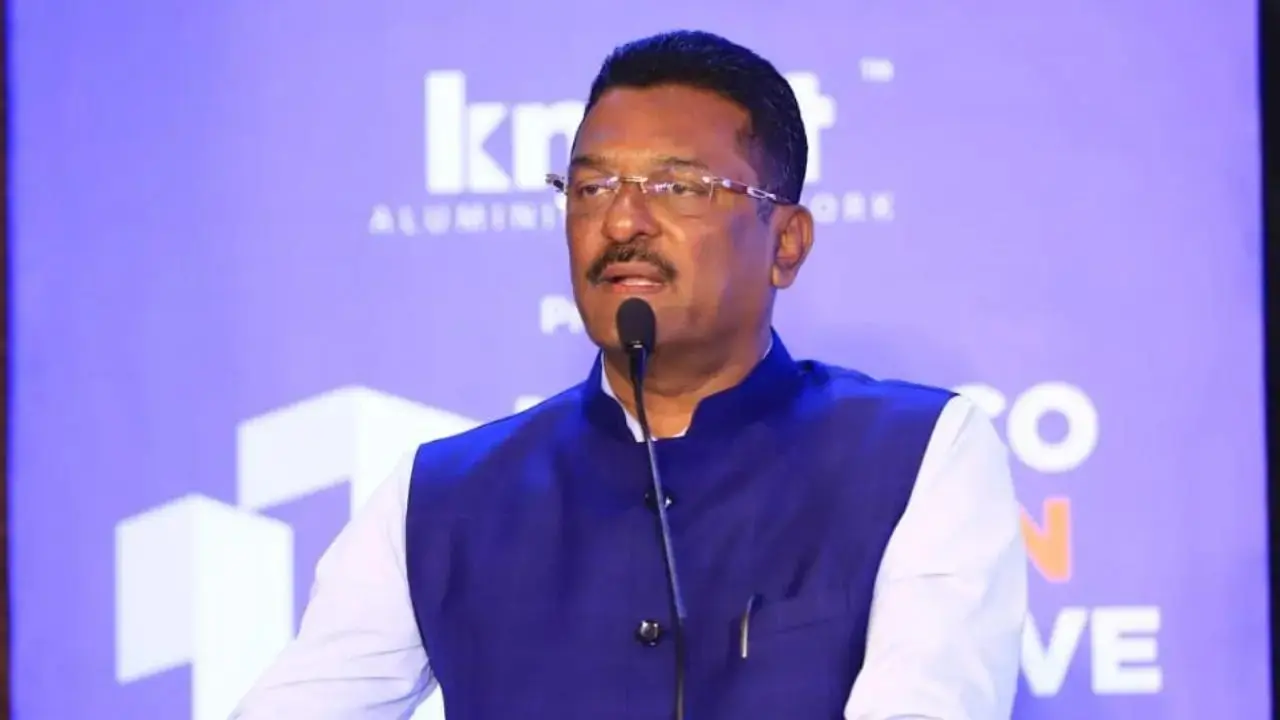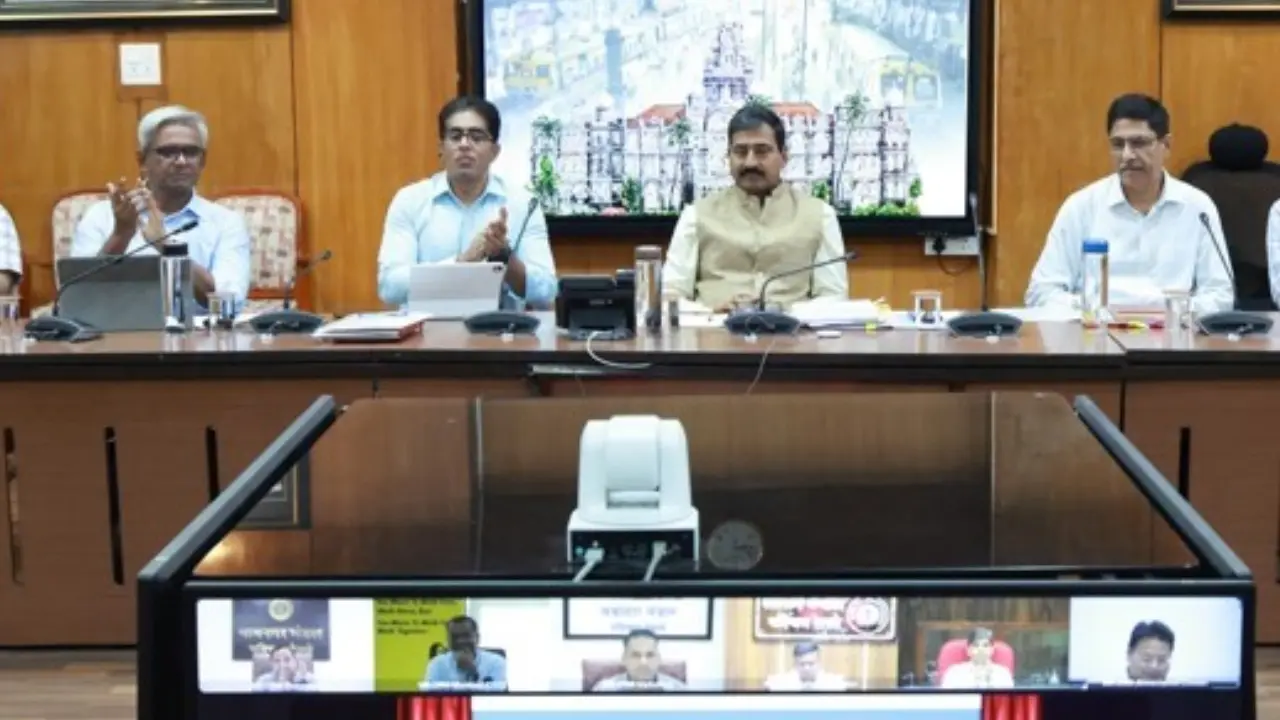As Navi Mumbai International Airport (NMIA) gears up to commence operations, ensuring the safety and security of passengers, employees, and surrounding communities stands as a top priority. The state-of-the-art airport is equipped with advanced technology to meet the growing demands of aviation while addressing potential security threats in light of global geopolitical shifts. From aviation security to disaster management, every aspect of the airport’s security framework has been meticulously planned to handle any emergency or contingency. mid-day takes a look at the ground security preparedness at NMIA.
Unique advantage
Given the airport’s proximity to large urban and industrial zones, it faces unique security challenges. According to officials, the security infrastructure has been designed with these in mind. One advantage is the airport`s expansive, open perimeter, which allows for clear visibility and better monitoring. “Unlike other airport projects in India, the airport operator owns the land surrounding the perimeter, which minimises the risk of encroachment,” an official explained.
Surveillance systems, including CCTV cameras and perimeter security, are already in place, with control rooms constantly monitoring activities. These systems are also integrated into contingency plans to address any breaches, ensuring a swift and coordinated response.
Operational readiness
Security personnel are already on-site, familiarising themselves with the airport`s layout and local conditions. The ministry of home affairs has sanctioned a total of 1840 security personnel for NMIA, with deployment phased in line with the airport’s operational stages. “Our staff undergoes intensive Operational Readiness and Airport Transfer (ORAT) training, which includes simulations to prepare for all scenarios,” said a security officer.
The personnel have been handpicked from across the country, bringing years of experience in aviation security from major airports like those in Bengaluru, Hyderabad, and New Delhi. The team also boasts a significant number of women in key roles, reflecting a strong push for diversity in aviation security.
Contactless security
The airport will feature advanced technology to streamline passenger security. Biometric screening and AI-driven surveillance systems will be at the heart of the security process, allowing for faster and more accurate checks. “Our team is well-versed in these technologies, having implemented similar systems at other major airports,” said a CISF official.
The new airport will roll out a seamless, contactless passenger experience through the Digi Yatra programme, which integrates biometric authentication and QR codes to expedite check-ins. “We anticipate that over 25 per cent of passengers will use Digi Yatra, with international travellers also embracing the technology in the near future,” the official added.
The security framework at NMIA involves close collaboration with local law enforcement. The Ulwe police station is already working alongside CISF personnel to fortify security operations. Frequent visits by the local police are helping them understand the operational dynamics of the airport.
A dedicated airport police station will soon be set up to manage security concerns. “Our main priority is securing the city-facing side of the airport before the terminal, ensuring a multi-layered approach to security,” said a local police officer.
Cutting-edge security
The airport will be equipped with the latest screening systems, including full-body scanners, a step that promises to reduce waiting times and ensure the highest level of security. “By deploying cutting-edge technologies like full-body scanners and AI surveillance, we’re not just improving security, but also enhancing passenger convenience,” the CISF official noted.
This CISF is working to minimise inconvenience for passengers. The transition from paper-based to scanner-based ticket and ID checks will significantly reduce contact with security personnel, making the process more efficient.
The Digi Yatra system, already in use at other airports, will also eliminate physical checks, thereby reducing touchpoints and cutting down on waiting times. “With more than 25 per cent of passengers already using Digi Yatra, we are confident that it will become a major part of the airport’s security and passenger convenience strategy,” added the CISF official.
The airport’s sprawling infrastructure is supported by a robust security system, with personnel deployed at critical touchpoints such as departure gates, cargo zones, and boarding areas. Quick Reaction Teams (QRTs), Bomb Detection and Disposal Squads (BDDS), and K9 units are on standby to respond to any contingency, CISF officials said.
The airport`s Security Operations Control Centre, which operates 24/7, serves as the nerve centre, overseeing security activities across the airport. A comprehensive CCTV network, supplemented by AI-driven video analytics, ensures constant monitoring and swift response to potential threats, the official added.
Comprehensive disaster management plans are being developed in coordination with local authorities, including the Raigad collector who is also the district magistrate, and police commissioner, and are aligned with the National and State Disaster Response Forces’ guidelines. Routine disaster response drills will be conducted to ensure that all stakeholders are prepared for any eventuality, whether natural (such as floods or earthquakes) or man-made (such as terrorist threats), the officer pointed out.
AI-enhanced surveillance
The airport’s surveillance network includes both electronic and manual monitoring, with a focus on critical areas like passenger terminals, cargo handling zones, and boarding gates. AI-enabled CCTV cameras will not only provide real-time video feeds but will also be capable of analysing behaviours and detecting potential threats. “This allows us to ensure that security is both effective and respectful of passenger privacy,” stated the
CISF official.






